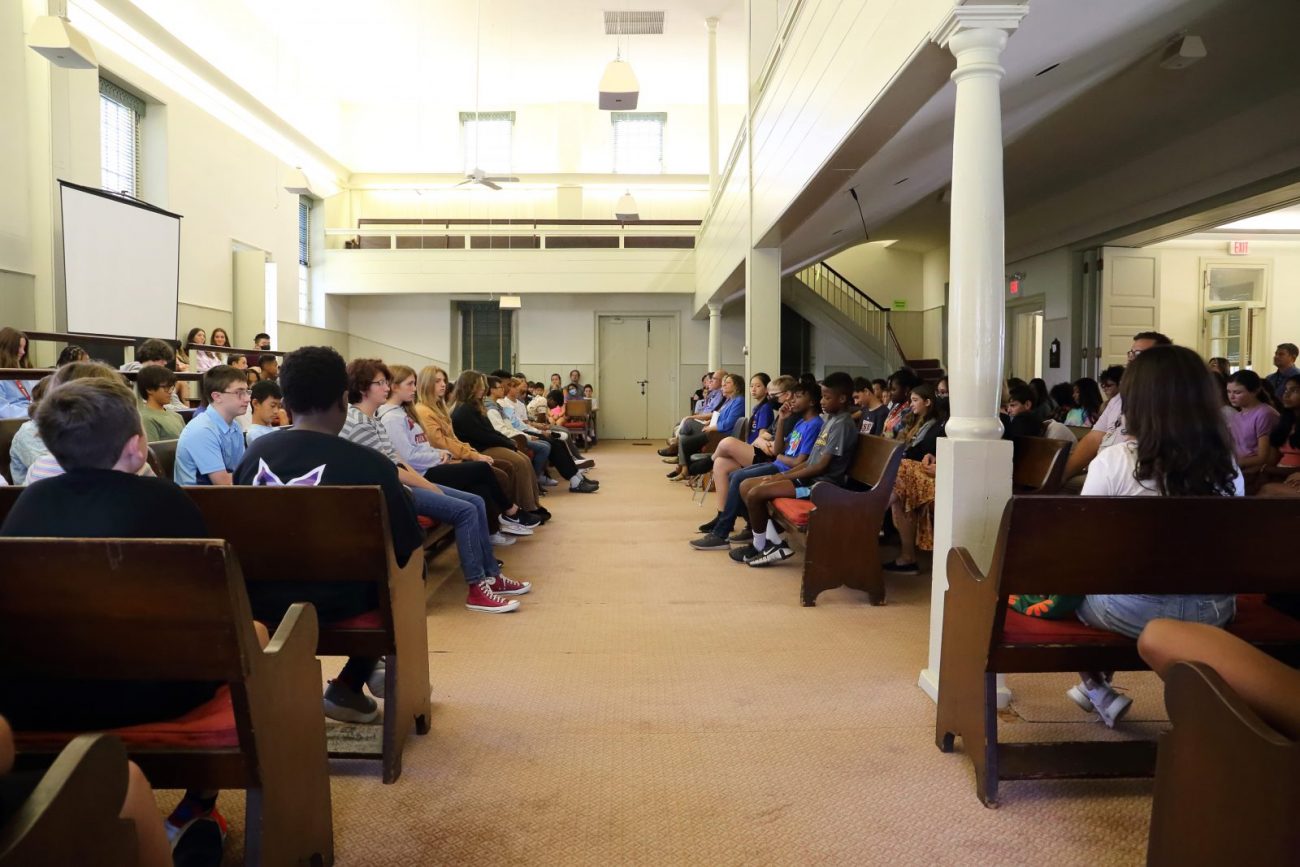What Social Media Can Learn from Quakers

This article is written by Meredith Godley, Associate Head of School and Academic Dean. It is one of several Quakerism-themed communications this year aimed to help orient families to daily life in a Friends school.
In a recent New York Times article, The Great Delusion Behind Twitter, columnist Ezra Klein asserts that Twitter could benefit immensely from studying the intentionality behind the thoughtful, deliberate Quaker decision-making process. He challenges the idea that Twitter, like other social media platforms, acts as a “common digital town square.” Pointing out that tweets, particularly when they originate from heated emotions or polarizing beliefs, do not help others see new and different points of view. This creates a rather unhealthy “town square” where statements are released to an unknown audience with little context and seemingly little deliberation. This does not allow divergent views to find common ground.
Klein goes on to explain that Twitter, and I would contend many social media platforms, could learn from Quakers and their process of sharing ideas. He states that “As a movement, Quakers have been far ahead of the moral curve time and again – early to abolitionism, to equality between the sexes, to prison reform, to pressuring governments to help save Jews from the Holocaust. That is not to say Quakers have gotten nothing wrong, but what has led them to get so much right?” To answer this question, Klein describes in detail a Quaker Meeting for Worship and Quaker decision-making process, aligning the Quaker belief that everyone holds a bit of the truth with the ability to sustain a healthier discussion and ultimately make the most beneficial decisions for a community.
Quakers believe that each member of a group holds part of the answer to a question or dilemma, and it is only by ruminating and digesting all beliefs that we can arrive at the right decision for a community. Not only do Quakers embrace these beliefs, but our teachers at Moorestown Friends embody these values and teach students the skills needed to have healthy, open-minded discourse. This process is not without its challenges; we must meet difficult conversations with space for silence and thought while we wait for the truth to surface. This can take time. But our students see the value in the deliberate, inclusive Quaker process.
One can observe the Upper School student Agenda Committee Clerks (student government presidents) conclude that the student body has not reached unity on an issue, and decide to delay a decision until the next meeting. Or they may decide to gather a committee to look more deeply at the issue and return with new ideas for consideration. Similarly in a faculty meeting there may be very different viewpoints on topics such as the dress code or a cell phone policy. Faculty do not rush a decision, and they do not make decisions based on what is best for individuals. The focus is always on what is best for the community and, of course, the students.
Often an assumption about Quakers is that they take a very long time to make decisions and the process can be cumbersome. Occasionally, a colleague might say “I wish you would just make the decision.” Although our decisions may take longer (they don’t always!), having additional time to discuss them allows for other possible thoughts to emerge. It means that once a decision is made, the community can rally around that decision as the unifying choice to better Moorestown Friends. Perhaps this is why Quakers have always been “far ahead of the moral curve” as Klein states. The deliberation process leads us to the right decision.
But, is there a place for social media’s short quips and points of view at a place like Moorestown Friends? Perhaps we could learn from Twitter, Facebook, and other platforms and their ways of sharing perspectives in concise and deliberate ways. In many ways, we already do such work. Teachers tweet out pictures of students in special activities or community celebrations. Whether the Lower School bot parade, a Mummer visiting class, a student-led Model UN conference, a service club activity, or the Edible Book Festival, these short bursts of joy and learning lend themselves best to social media platforms in that they bring moments of pride, accomplishment, and growth to our Moorestown Friends “town square.” There is no debate, there is nothing nuanced, it is simply a showcase of our community’s successes.
So perhaps what Quakers, and schools like Moorestown Friends, can learn from Twitter and other social media platforms is that the best influence we can have is to show our community that these platforms are not a place for debate. Rather, we should use them to spread awareness and gratitude for all that our community does to bring people together. So don’t stop tweeting, don’t stop posting, just consider what material is best served by open minds and slow deliberation, as Quakers practice, and what quick bursts of joy should be on social media. Maybe, it will be one more instance of Quakers being ahead of the curve.
